*This DIY is part of a previous project, sponsored by SKIL Power Tools UK. This post also contains affiliate links.
About a week ago I shared a little project I had made for the garden – a DIY garden mirror. Well, you may have noticed it was framed either side with some little planters? Yep, those were DIYs too! And they were made using the exact same materials as the mirror, which I had leftover. I thought sharing both tutorials in one post might be a bit overkill, so this blog post will be all about how I built these DIY plywood fence planter.

The idea behind the planters was to add a bit more greenery to an otherwise dull fence. We’ve replaced the fences around the rest of the garden with slat pallet fencing, but I wanted to do something a bit different for this bit, which sits directly area the pallet seating. I think it works really well with the mirror and will hopefully only look better in time once the shrubs have grown in a bit more and become a kind of living plant wall!
If you like this alternative DIY plywood fence planter, then keep reading as I’m sharing a full tutorial on how they’re made. Oh and there’s a video tutorial at the end too – in case reading isn’t your thing.
(Please note, this blog uses affiliate links where possible. This enables me to earn a commission for any sales through the blog. It does not alter the price to pay, it simply helps to support the blog and helps me to keep creating content!)
How to Make a DIY Plywood Fence Planter
You Will Need:
Materials
- Exterior plywood (I’ve used 12mm)
- Wood battens measuring 25mm x 38mm
- Screws (35mm)
- Garden paint
- Hooks for hanging
- Compost
- A selection of plants!
Tools
- Tape Measure
- Pencil
- Circular Saw (or similar)
- Optional: Mitre Saw
- Sander
- Drill
- Clamps
Safety Gear
- Ear Defenders
- Goggles
- Dust Mask
Step 1 – Measure and Plan
Sounds fairly straightforward, doesn’t it? You can make your planters as big or as small as you want, however, since I’ve designed mine to fit either side of the DIY garden mirror, I needed to measure the gap to determine how long they needed to be.
I also decided to match the planters in height to the pallet fencing (which you can see on the right) and as I didn’t want the planters to stick out too much, I tried to keep them as narrow as possible.
So with all this in mind, these are the measurements I decided to go for:

Step 2 – Cut Your Plywood to Size
Once you’ve decided on your measurements, you can start cutting! You’ll want to lay your plywood sheet out on a suitable work area and mark up the cuts you need to make. I used a SKIL circular saw for cutting the plywood, which glided through it like butter.
In order to make 5 planters, I needed 10 strips of plywood measuring XX by XX. Once I had cut the initial strips, I then used a mitre saw to make the right length and I used the offcuts to then cut 10 lengths at 7cm, which will make the other two sides of the planter.

Once you’ve cut everything to size, you’ll want to sand down the edges of your plywood so that they’re smooth before painting all four sides with some exterior weatherproof paint. I’ve used a SKIL sander for sanding and Johnstone’s Garden Colour in ‘Calming Stone’.

Step 3 – Cut Wooden Battens for the Base
You can use plywood for the base (providing you add some holes for drainage!), but sadly I didn’t quite have enough leftover. So, instead, I’m using treated timber to make a slated ladder kind of base. Hard to explain, but hopefully, the image below will make more sense!
To do this, you need to cut your battens to the same width as the two ends of your plywood planter. So for me, that was 7cm and I’ve used 8 cuts of wood for each planter.
Step 4 – Screw Everything Together!
Next, gather yourself some screws and start assembling your planters! The easiest way to do this is by using some clamps to hold the plywood together, freeing up our hands to add four screws on each side.
Space out your battens along the bottom of the planter, and again add one screw on each side to fix them in place. Once done, you can paint over the screws so they ‘blend in’. If you’ve got a bit more time, you can also countersink your screws, fill over with a suitable exterior filler and then paint so they’re completely hidden.
Step 5 – Line the Inside with Landscaping Fabric and Add Compost and Plants
In order for this planter to hold compost, we’ll need to line it with some landscaping fabric. Simply cut to size and slot into your planter. Don’t forget to cut out a minimum of 3 holes into the base, which will allow for drainage! If you don’t do this, it will more than likely cause root rot in your plants.
Once fully lined, you’re now ready to add some plants! I’ve used some shrubs, lavender, rosemary and even wildflowers to fill out my planters. I think the mix looks really good – it’s colourful and eye-catching.
Step 6 – Fix to a Fence or Wall and Enjoy!
My planter will be going against a wire trellis, so I simply used hooks screwed into the back of the planter, so I can hang them on the mesh. For a normal fence or wall, you could either use brackets to the sit the planter on or even simpler, hang with rope.




And that’s it! I hope you like these hanging planters and I hope it’s inspired you to perhaps do something a bit different with your fences too. Let me know what you think and if you attempt this DIY, I would love to see! You can find me on Instagram here.
Here’s a little before and after of this seating area so you can fully see the difference.

(If you want to see a full tutorial for the DIY garden mirror, then check out this post!)
You can find a video tutorial below, otherwise;
Happy DIYing!
(VIDEO CONTENT – COMING SOON)
*This DIY was part of a previous project, sponsored by SKIL Power Tools UK. All words and opinions are my own. A huge thanks to SKIL Power Tools for supporting this blog and allowing this project to happen!
**This post may also contain affiliate links.






















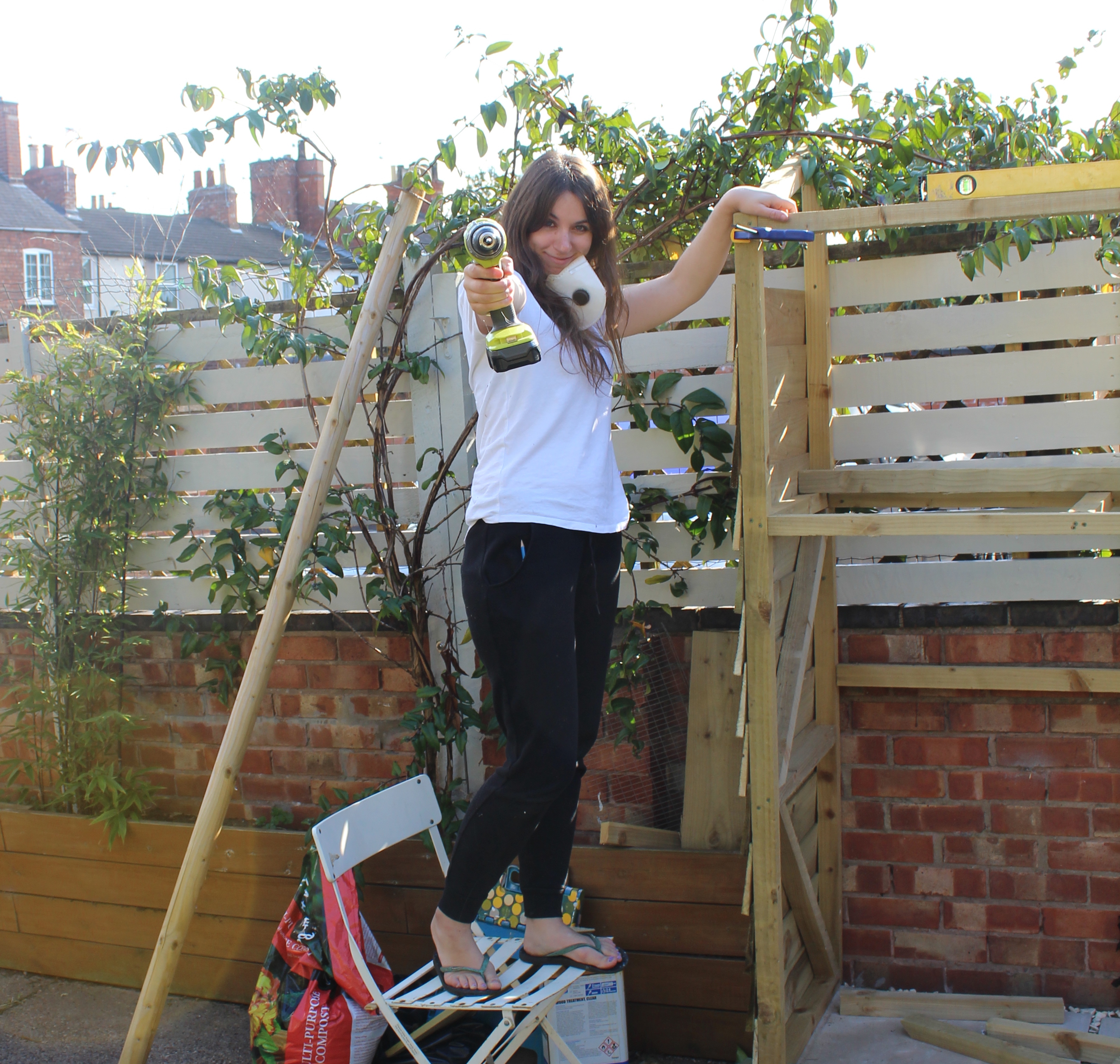

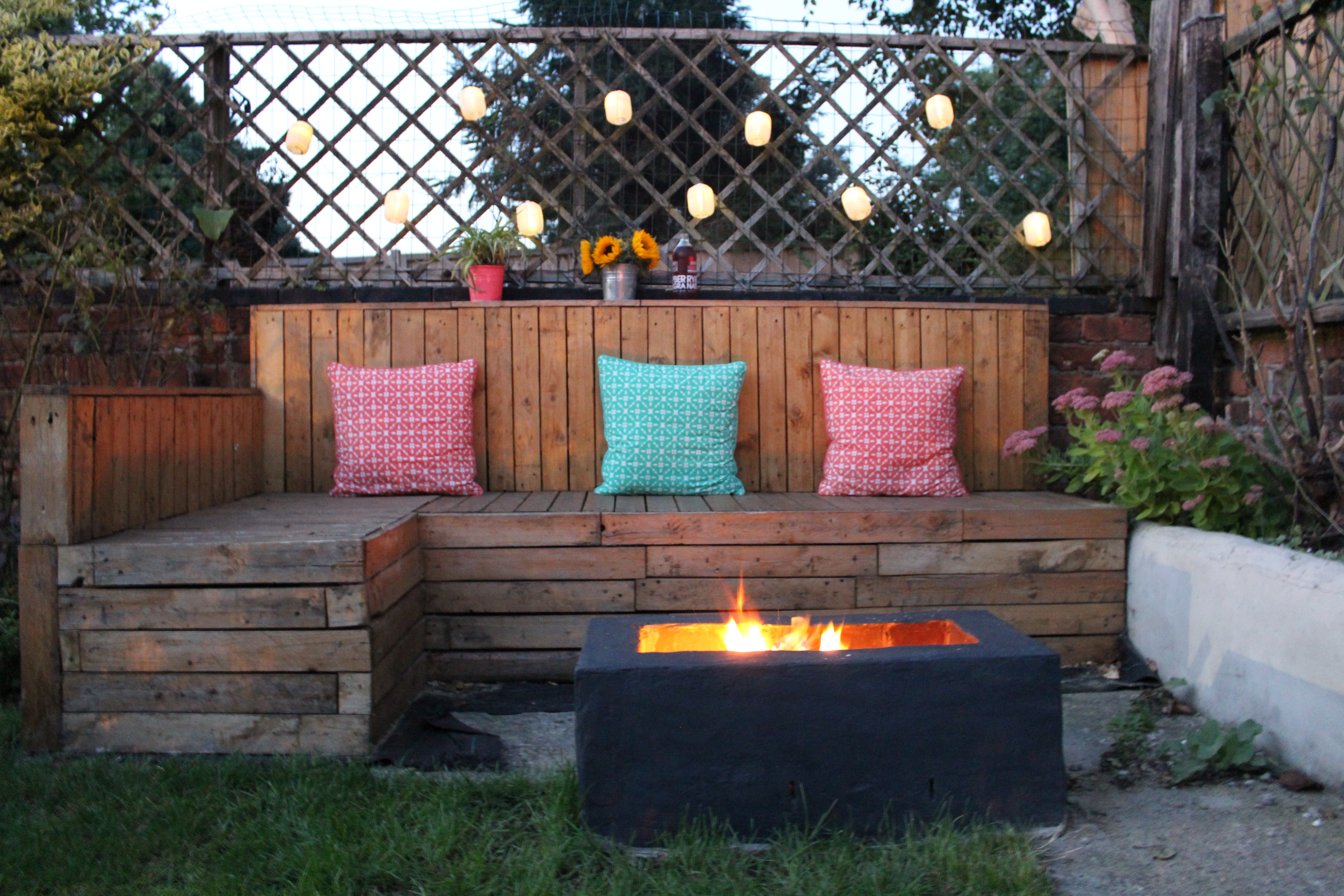
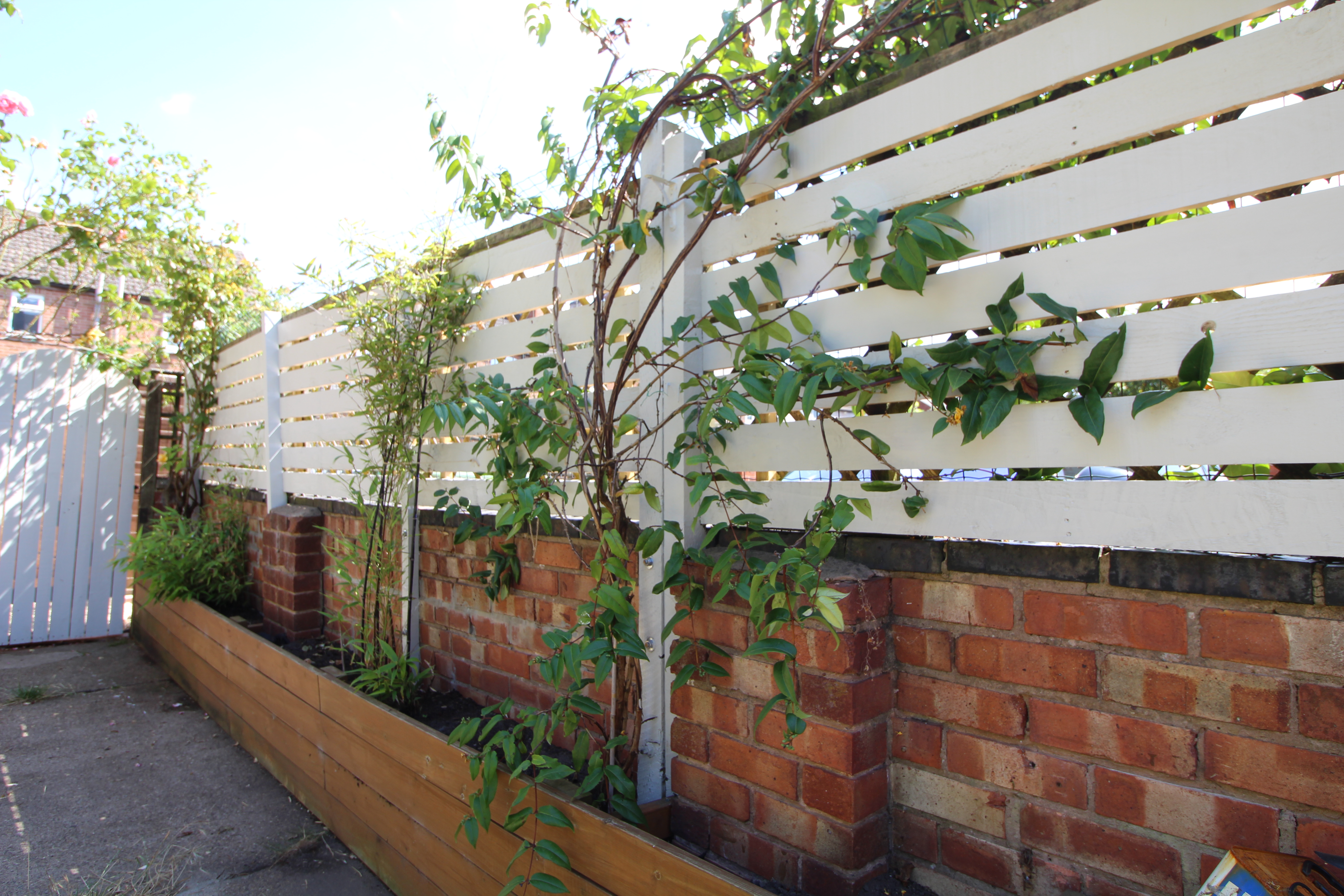
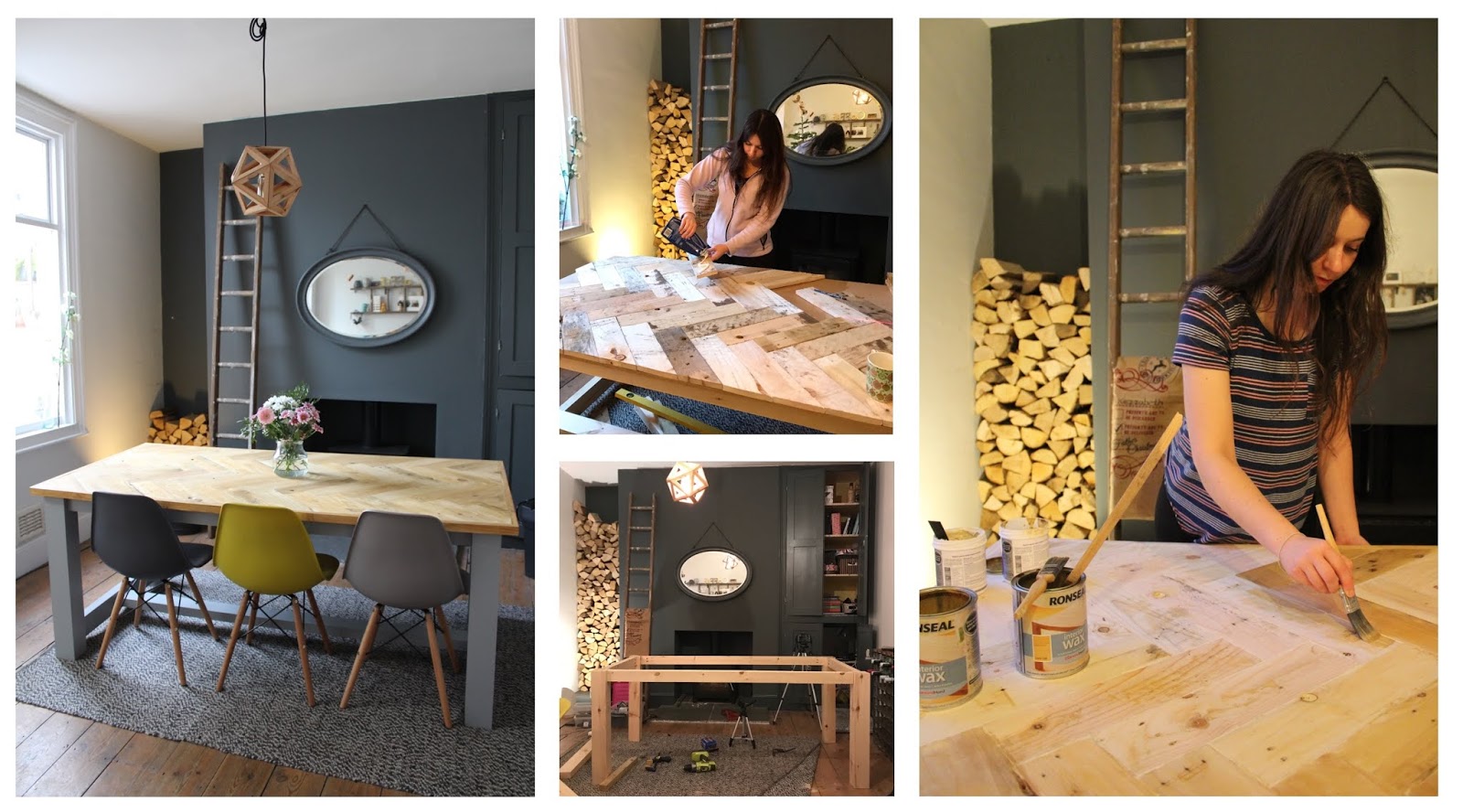
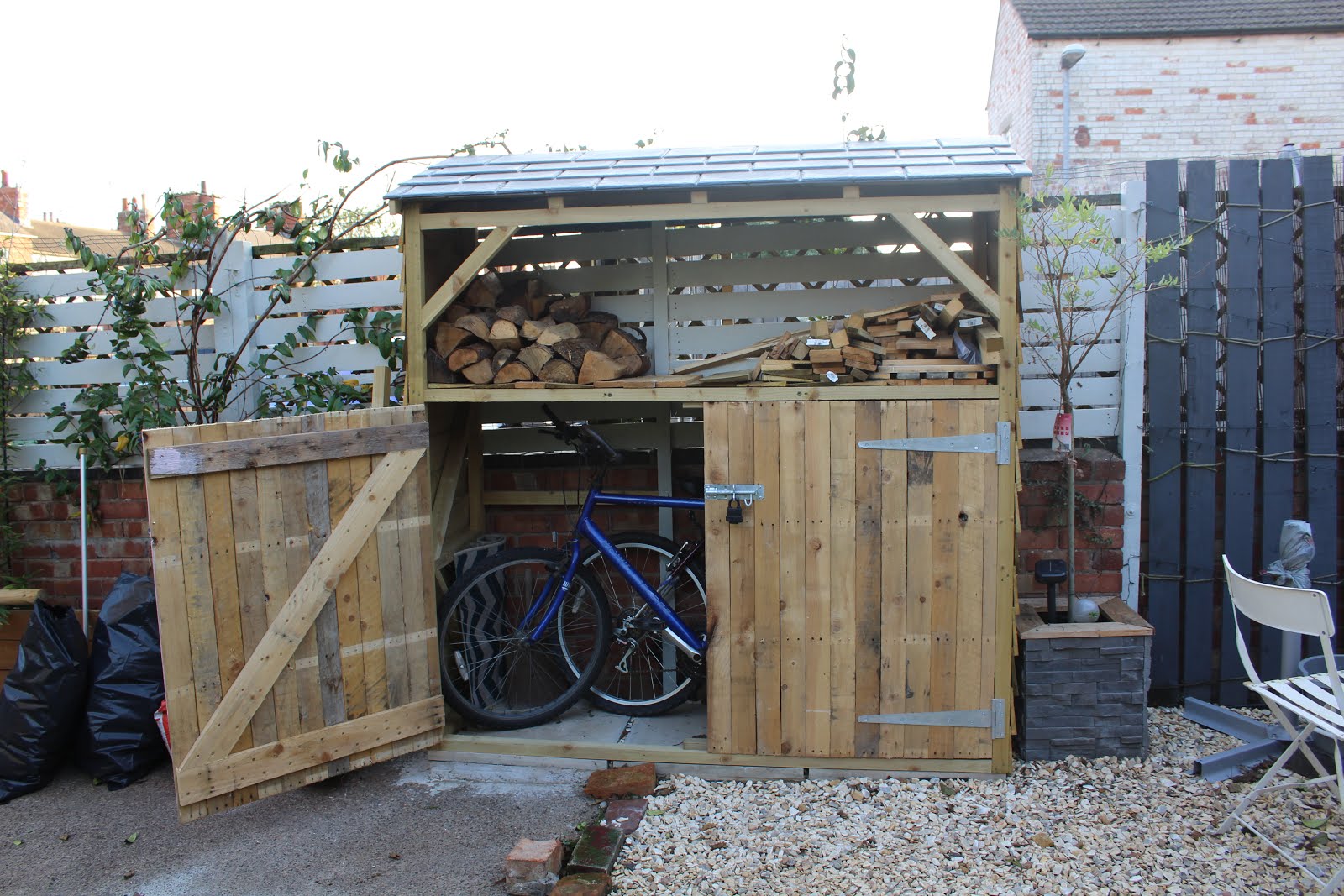
No Comments